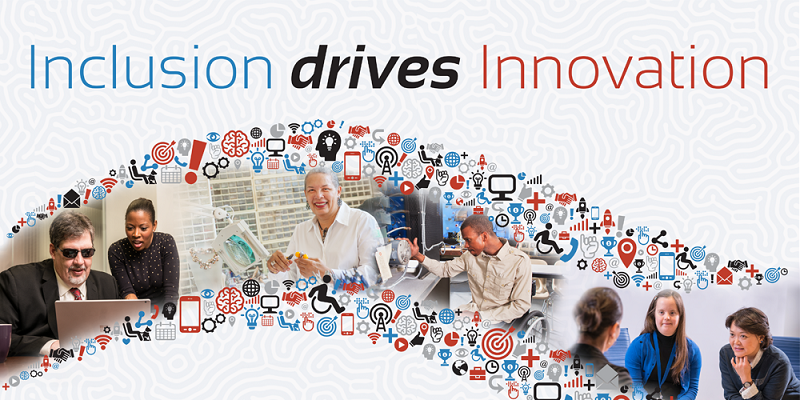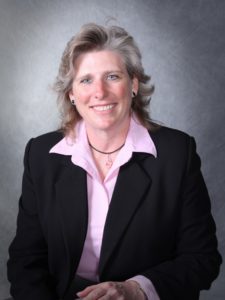Every October, our country celebrates the workplace contributions of people with disabilities during National Disability Employment Awareness Month (NDEAM). This month provides an ideal opportunity to increase awareness of a diverse pipeline of talent while promoting disability inclusion as a competitive business strategy. This year’s theme is Inclusion drives Innovation so there is no better time than the present to make disability inclusion a workplace reality. What are some ways that inclusion can drive innovation at your company? Let me offer a few suggestions. One introductory approach is participation in Disability Mentoring Day, which is an international event hosted by the American Association of People with Disabilities (AAPD) in collaboration with the Office of Disability Employment Policy (ODEP). Held on the third Wednesday of October, Disability Mentoring Day (DMD) promotes career development for students and graduates with disabilities at businesses with a day of hands-on career exploration and mentoring. Each year, hundreds of DMD events are conducted all over the country serving thousands of mentees. And, this mentoring significantly improves the ability for youth and adults with disabilities to network and learn more about employment opportunities. It also offers employees and managers’ exposure to disability and employment issues and recognition of how work can serve as a meaningful way to connect.
Wit h an aging and shrinking workforce producing significant skill gaps, NDEAM is also an appropriate time to foster disability inclusion and renew a workforce training approach that meets labor demand and drives innovation and talent through apprenticeship. Celebrating its 75th year of existence, apprenticeship has been traditionally promoted in the skilled trades. To address the needs of a changing economy, apprenticeship programs are being revolutionized to attract high-growth fields such as energy, finance, information technology and professional services. Advancing diversity and inclusion through apprenticeships is a national initiative and the Department of Labor has allocated 90 million dollars of funding for ApprenticeshipUSA. With this substantial investment, companies can realize that a well-planned apprenticeship program can yield many distinct advantages. This starts with recruiting diverse candidates that have the pre-apprenticeship skills to become highly qualified apprentices through education, training, and work experience. Apprenticeship programs can reduce absenteeism and turnover as most apprentices are committed to program completion and conversion to permanent jobs. Ensuring that apprentices are trained to industry standards also increases productivity and system improvements through structured apprenticeship programs that are inclusive of apprentices with disabilities. To this end, disability inclusion has always been about educational and employment equity. With innovation, leadership and disability resources, workplaces and society can advance considerable thought and action to implement disability inclusion not just because of NDEAM or thinking it is the right thing to do but, more importantly, creating competitive business strategy and success.
h an aging and shrinking workforce producing significant skill gaps, NDEAM is also an appropriate time to foster disability inclusion and renew a workforce training approach that meets labor demand and drives innovation and talent through apprenticeship. Celebrating its 75th year of existence, apprenticeship has been traditionally promoted in the skilled trades. To address the needs of a changing economy, apprenticeship programs are being revolutionized to attract high-growth fields such as energy, finance, information technology and professional services. Advancing diversity and inclusion through apprenticeships is a national initiative and the Department of Labor has allocated 90 million dollars of funding for ApprenticeshipUSA. With this substantial investment, companies can realize that a well-planned apprenticeship program can yield many distinct advantages. This starts with recruiting diverse candidates that have the pre-apprenticeship skills to become highly qualified apprentices through education, training, and work experience. Apprenticeship programs can reduce absenteeism and turnover as most apprentices are committed to program completion and conversion to permanent jobs. Ensuring that apprentices are trained to industry standards also increases productivity and system improvements through structured apprenticeship programs that are inclusive of apprentices with disabilities. To this end, disability inclusion has always been about educational and employment equity. With innovation, leadership and disability resources, workplaces and society can advance considerable thought and action to implement disability inclusion not just because of NDEAM or thinking it is the right thing to do but, more importantly, creating competitive business strategy and success.
 Kathleen Lee is a Business Outreach Specialist at Cornell University’s ILR School and the K. Lisa Yang and Hock E. Tan Employment and Disability Institute. Kathleen provides technical assistance training and consultation for the business community on issues related to the employment of individuals and veterans with disabilities by sharing best employment practices and technical assistance resources. Kathleen’s experience includes more than twenty years in job placement, human resources and disability inclusion to assist companies in diversifying their workforces. Kathleen has also administered federal employment and mentoring programs in multiple locations throughout the country serving individuals with disabilities, dislocated workers, students, and veterans.
Kathleen Lee is a Business Outreach Specialist at Cornell University’s ILR School and the K. Lisa Yang and Hock E. Tan Employment and Disability Institute. Kathleen provides technical assistance training and consultation for the business community on issues related to the employment of individuals and veterans with disabilities by sharing best employment practices and technical assistance resources. Kathleen’s experience includes more than twenty years in job placement, human resources and disability inclusion to assist companies in diversifying their workforces. Kathleen has also administered federal employment and mentoring programs in multiple locations throughout the country serving individuals with disabilities, dislocated workers, students, and veterans.
Kathleen holds an Advanced Certificate of Strategic HR Management from Cornell University and is a graduate of the Rehabilitation Institute, Southern Illinois University where she received a Master of Science degree in Rehabilitation Administration and Job Development and Placement.

